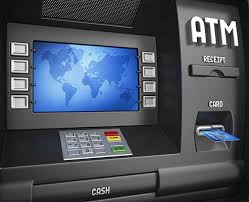
How Investing in an ATM Machine Can Benefit Your Business in the Long Run
If you own a business, you know that cash is king. But what if you could increase your cash flow while also providing a valuable service to your customers? Investing in an ATM machine for your business can do just that. In this blog, we will discuss the benefits of owning an ATM machine and why it can be a smart investment for your business in the long run.
Increased Revenue
One of the most significant benefits of owning an ATM machine is the potential for increased revenue. When customers withdraw money from your ATM machine, they are charged a fee. Depending on your location and the demand for cash, this fee can add up quickly and become a significant source of additional income for your business.
On average, ATM owners can expect to make around 10-15% of their total revenue from ATM fees alone. This can be a great way to supplement your other income streams and increase your overall profits.
Convenience for Customers
In today’s fast-paced world, convenience is key. By providing an ATM machine on-site, you are offering your customers an added convenience that can make a significant difference in their experience. Customers can access cash quickly and easily, without having to go off-site to find an ATM machine. This can improve their overall experience and make them more likely to return to your business in the future.

Increased Foot Traffic
By owning an ATM machine, you can attract new customers to your business. When people are out and about and need cash, they are more likely to stop at a business that has an ATM machine on-site. This can increase foot traffic to your business and potentially lead to more sales and revenue.
Reduced Credit Card Fees
Accepting credit card payments can be expensive for businesses. Many businesses have to pay a percentage of each sale in credit card processing fees. By providing an ATM machine on-site, you can encourage customers to pay with cash, reducing your credit card fees and saving you money in the long run.
Low Maintenance Costs
ATM machines are relatively low-maintenance and require little upkeep. Most machines come with a warranty and service agreement, which means that if something goes wrong, you won’t have to pay for costly repairs. Additionally, most ATM machines are designed to be easy to use, which means that you won’t have to spend a lot of time training your staff or troubleshooting problems.
Enhanced Security
ATM machines are designed to be secure, with advanced technology that can prevent fraud and protect customer data. By providing an ATM machine on-site, you are offering your customers a secure way to access cash, which can help build trust and loyalty.
Tax Benefits
Purchasing an ATM machine can also provide tax benefits for your business. The cost of the machine, as well as any maintenance and repair costs, can be deducted from your business’s taxes. Additionally, any income generated from ATM fees can be reported as revenue and deducted from your business’s taxes.
Investing in an ATM machine can be a smart investment for your business in the long run. By providing added convenience for customers, increasing revenue, reducing credit card fees, and attracting new customers, you can improve your overall business performance. Additionally, low maintenance costs, enhanced security, and potential tax benefits make owning an ATM machine an attractive option for many businesses. Consider these benefits when making a decision about whether or not to invest in an ATM machine for your business.

The Cost of Investing in ATM Machines
Investing in an ATM machine for your business can offer numerous benefits, as we’ve discussed in the previous section. However, it’s important to consider the costs associated with purchasing and maintaining an ATM machine. In this section, we’ll discuss the cost of ATM machines and factors that can impact the overall expense.
Initial Cost
The initial cost of purchasing an ATM machine can vary significantly depending on the type of machine and features you choose. Generally, new ATM machines can cost anywhere from $2,000 to $8,000, with some higher-end models costing up to $20,000. However, purchasing a used or refurbished ATM machine can be a more cost-effective option, with prices ranging from $1,000 to $4,000.
Installation and Set-Up Costs
In addition to the initial cost of purchasing an ATM machine, there are also installation and set-up costs to consider. These costs can include:
- Installation Fees: Depending on the location of the machine, you may need to hire a professional to install it, which can cost anywhere from $200 to $1,000.
- Transaction Processing Fees: You will also need to sign up for a transaction processing service, which can cost anywhere from $50 to $150 per month.
- Networking Fees: If you choose to connect your ATM machine to a network, you will also need to pay network fees, which can cost anywhere from $25 to $100 per month.

Maintenance and Repair Costs
ATM machines require regular maintenance and repairs to ensure they are functioning correctly. Maintenance costs can include:
- Software Updates: ATM machines require regular software updates, which can cost anywhere from $100 to $500 per year.
- Cash Loading: You will also need to regularly load cash into the machine, which can cost anywhere from $50 to $200 per visit.
- Repair Costs: If the machine experiences any issues, you will need to pay for repairs, which can range from $100 to $1,000 or more, depending on the extent of the damage.
Insurance and Security Costs
Finally, it’s important to consider the cost of insurance and security for your ATM machine. Insurance costs can vary depending on your location and coverage needs but can range from $100 to $500 per year. Additionally, you will need to invest in security measures to protect the machine from theft, which can include installing security cameras, alarms, and locks.
Investing in an ATM machine can offer numerous benefits to your business, but it’s important to consider the associated costs. From the initial purchase price to installation and set-up costs, maintenance and repair expenses, and insurance and security fees, there are a variety of factors that can impact the overall cost of owning an ATM machine. Be sure to budget for these costs when considering whether or not to invest in an ATM machine for your business.
